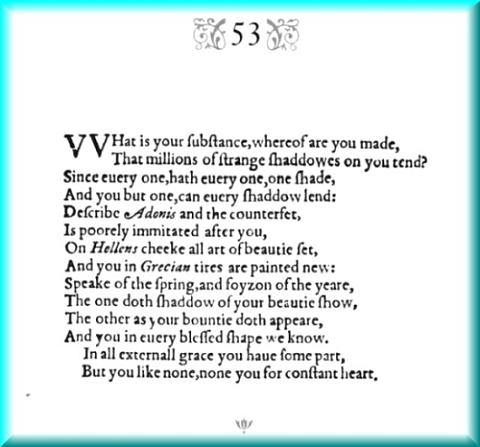|
Sonnetto Poesia Vol 3 no 2 2004
|
||||||||||
|
|
Richard Vallance
|
|||||||||||||||||||||||||||||||||||||||||
|

Did You Hear the Loons? Do You?
1
You love canoeing. You've heard wolves before.
2
We've heard them, both. Their cries are wild, as
wild
3
We stare in silence as loons, three, veer near
4
Ten years have come and gone, and nothing's changed.
5 Ten years have come and gone. The CBC *
6
They try and save 1, scrub him down. I cringe.
© by Richard Vallance 2004
March 6 2004
* Every single word of this quatrain is based on
fact. Just last evening, the 10 O'Clock News on the CBC (Canadian Broadcasting Corporation), reported that yet another foreign
rogue container ship had deliberately dumped a vast oil slick off of Newfoundland's shores. Hundreds of seabirds, including
scores and scores of loons, Common Loon and Arctic Loons alike, were gruesomely mired in oil, and the vast majority of them
suffocated to death. As I watched the news report, I watched and saw the poor, helpless volunteers desperately trying to save
the life of one Arctic Loon still struggling to breathe through the oily mess miring his feathers with guck. They had him
pinned down in a large bucket of warm water full of suds, and one of the volunteers had to hold his very sharp beak closed,
so the frantic bird would not bite any of the folks trying to save him in his terror. That loon was not merely howling. He
was not merely wailing. He wasn't even just crying. He was SOBBING! It just broke my heart.
Is there no end to the boundless stupidity and heartlessness
of humankind? Just exactly what kind of creatures ARE we? If we don't clean up our act soon, and once and for all time, for
good, and learn to live in harmony with this Earth and all her living creatures, flora and fauna alike, who support us, I
am afraid, as the old saying goes, "our goose is cooked."
Richard Vallance
I have always been dying to translate this exquisite sonnet,
which has forever delighted me more than any other sonnet of William Shakespeare, but I have been more than a little hesitant
for years now to thrust upon myself a literary task of such magnitude as this, seeing as I did not wish to fail. But this
evening, at long last, some deep inspiration which had always eluded me before, overcame me. All this is of course quite unexplainable,
but any phenomenon such as this always is. Anyway, there you have it. Poetic creativity is one of the greatest
mysteries of life, and who am I to fuss over it? This sonnet is found on my poetry site, here: Poesie's laissez-faire Faire Foire: William Shakespeare  |
|||||||||||||||||||||||||||||||||||||||||
 |
||










